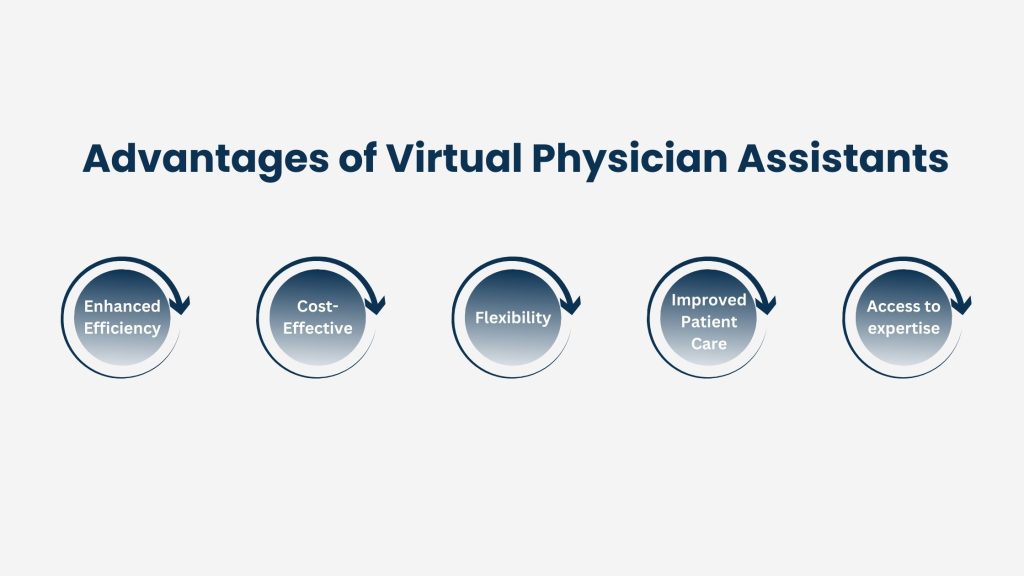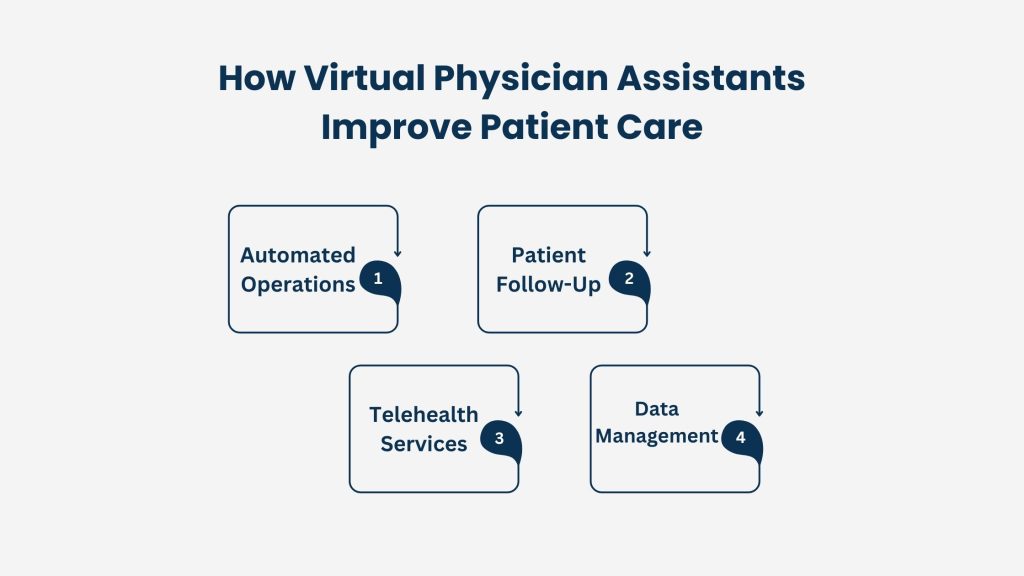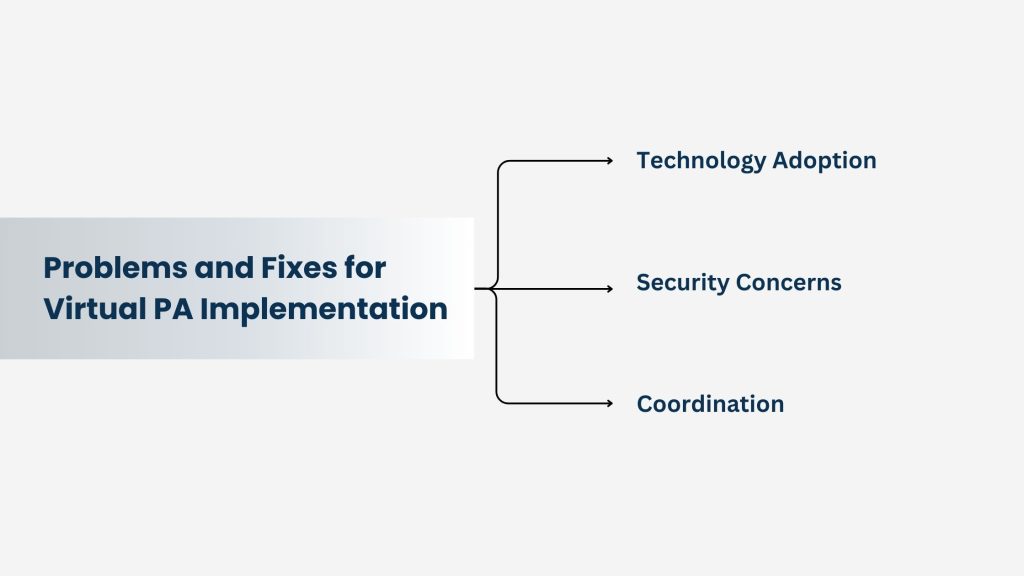Introduction
Effective and dependable support is the most important factor in the healthcare industry. In this article, we have explored the job of the virtual physician assistant. They use technology to transform patient care, allowing doctors to focus on their other important duties towards their patients. Let us now understand the concept of a virtual medical assistant and how it might benefit the healthcare sector.
The responsibilities of virtual PAs
Remote employees or virtual physician assistants help doctors with their clinical and administrative needs. Traditional physician assistants (PAs) work in a physical setting, such as a hospital, but virtual PAs work remotely, typically from home or a central office. They concentrate on appointment scheduling and record keeping to offer telehealth services and patient follow-ups.
Advantages of Virtual Physician Assistants
Enhanced Efficiency
Doctors can spend more time with their patients while virtual PAs handle time-consuming administrative tasks.

Cost-Effective
Employing an online medical assistant is less expensive than hiring staff members on-site.
Flexibility
Healthcare professionals get help from virtual assistants after regular business hours, guaranteeing round-the-clock patient consultation.
Improved Patient Care
Virtual PAs do repetitive work so that doctors can concentrate more on patient care, which improves patient outcomes.
Access to expertise
Virtual PAs have raised the standard of care by bringing unique skills and expertise into the workplace.
How Virtual Physician Assistants Improve Patient Care
Automated Operations
Virtual PAs ensure that healthcare facilities run smoothly, reducing wait times and increasing patient satisfaction by handling administrative duties.

Patient Follow-Up
Virtual PAs supervise follow-up visits and check-ins, ensuring that patients adhere to their treatment plans and receive timely care.
Telehealth Services
Virtual PAs are essential in the telemedicine world as they manage technical problems, make virtual consultations easier, and guarantee smooth patient-provider contact.
Data Management
The accuracy and timeliness of patient information is crucial for optimal treatment, and virtual PAs ensure this through proper documentation and data management
Problems and Fixes for Virtual PA Implementation
Even if there are many advantages, there are drawbacks when incorporating a virtual PA into medical practice:
Technology Adoption
Some physicians are reluctant to adopt modern technologies.
Solution: Educate everyone thoroughly and highlight the benefits of virtual PAs.

Security Concerns
Ensuring adherence to laws like HIPAA and patient data privacy.
Solution: Make use of safe, encrypted channels for communication and make sure virtual personal assistants have received training on data security procedures.
Coordination
It can be challenging to incorporate virtual PAs into current operations seamlessly.
Solution: Establish unambiguous procedures and keep channels of communication available.
Also Read: Virtual Assistant Services in Lucaya
The Future Potential for Remote Medical Assistants
The emergence of virtual physician assistants is a major change in the healthcare sector, not merely a trend. Virtual PAs are certain to become an essential component of healthcare teams everywhere as technology develops and the need for effective, high-quality treatment rises. Artificial Intelligence (AI) and machine learning have the potential to significantly expand the functions of virtual PAs, hence increasing their demand.
Case Studies: Success Stories with Virtual PAs
Case Study 1: A Busy Urban Clinic A busy metropolitan clinic that was having trouble keeping up with its workload employed a virtual PA to handle patient scheduling and documentation. Consequently, there was a notable decrease in administrative errors and a 30% rise in patient satisfaction.
Case Study 2: A Provider of Healthcare in Rural Areas For patients who had difficulty accessing in-person treatment, a rural healthcare provider filled the gap by using virtual PAs to deliver telehealth services. This program enhanced patient outcomes and made better use of the physician’s time.
Conclusion
In medical settings, virtual PAs are a revolutionary step toward improving patient care and medical efficiency. By handling administrative responsibilities, supplying telemedicine support, and guaranteeing data quality, virtual PAs free up healthcare professionals to concentrate on what matters: their patients. The position of the virtual physician assistant will surely expand as the healthcare sector develops, bringing with it even more innovations and advancements in patient care.
One way to improve patient care and streamline operations in the healthcare sector could be to think about hiring a virtual physician assistant. To meet the special requirements of medical professionals, Tasks Expert provides a variety of virtual assistant services. Find out how we can support the success of your practice in this new healthcare era.
Let us talk and find out how we can help you improve. For more details, mail us at contact@tasksexpert.com
About Us
Tasks Expert offers top-tier virtual assistant services from highly skilled professionals based in India. Our VAs handle a wide range of tasks, from part time personal assistant to specialized services like remote it support services, professional bookkeeping service etc. Furthermore, it helps businesses worldwide streamline operations and boost productivity.
Ready to elevate your business? Book a Call and let Tasks Expert take care of the rest.









